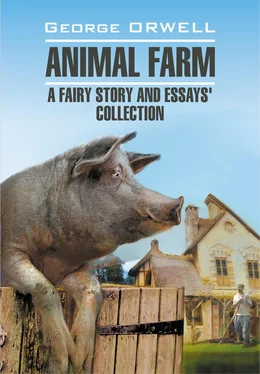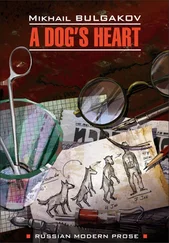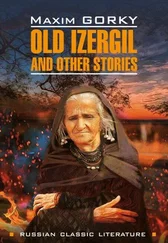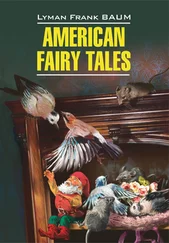At St Cyprian’s, in term-time, the general bareness of life enforced a certain democracy, but any mention of the holidays, and the consequent competitive swanking about cars and butlers and country housed, promptly called class distinctions into being. The school was pervaded by a curious cult of Scotland, which brought out the fundamental contradiction in our standard of values. Flip claimed Scottish ancestry, and she favoured the Scottish boys, encouraging them to wear kilts in their ancestral tartan instead of the school uniform, and even christened her youngest child by a Gaelic name. Ostensibly we were supposed to admire the Scots because they were ‘grim’ and ‘dour’ (‘stern’ was perhaps the key word), and irresistible on the field of battle. In the big schoolroom there was a steel engraving of the charge to the Scots Greys at Waterloo, all looking as though they enjoyed every moment of it. Our picture of Scotland was made up of burns, braes, kilts, sporrans, claymores, bagpipes and the like, all somehow mixed up with the invigorating effects of porridge, Protestantism and a cold climate. But underlying this was something quite different. The real reason for the cult of Scotland was that only very rich people could spend their summers there. And the pretended belief in Scottish superiority was a cover for the bad conscience of the occupying English, who had pushed the Highland peasantry off their farms to make way for the deer forests, and then compensated them by turning them into servants. Flip’s face always beamed with innocent snobbishness when she spoke of Scotland. Occasionally she even attempted a trace of Scottish accent. Scotland was a private paradise which a few initiates could talk about and make outsiders feel small.
‘You going to Scotland this hols?’
‘Rather! We go every year.’
‘My pater’s got three miles of river.’
‘My pater’s giving me a new gun for the twelfth. There’s jolly good black game where we go. Get out, Smith! What are listening for? You’ve never been to Scotland. I bet you don’t know what a blackcock looks like.’
Following on this, imitations of the cry of a blackcock, of the roaring of a stag, of the accent of ‘our ghillies’, etc. etc.
And the questionings that new boys of doubtful social origin were sometimes put through – questionings quite surprising in their mean-minded particularity, when one reflects that the inquisitors were only twelve or thirteen!
‘How much a year has your pater got? What part of London do you live in? Is that Knightsbridge or Kensington? How many bathrooms has you house got? How many servants do your people keep? Have you got a butler? Well, then, have you got a cook? Where do you get your clothes made? How many shows did you go to in the hols? How much money did you bring back with you?’ etc. etc.
I have seen a little new boy, hardly older than eight, desperately lying his way through such a catechism:
‘Have your people got a car?’
‘Yes.’
‘What sort of car?’
‘Daimler.’
‘How many horse-power?’
(Pause, and leap in the dark.) ‘Fifteen.’
‘What kind of lights?’
The little boy is bewildered.
‘What kind of lights? Electric or acetylene?’
(A longer pause, and another leap in the dark.) ‘Acetylene.’
‘Coo! [20] Coo! – (разг.) Ха!
He says his pater’s car’s got acetylene lamps. They went out years ago. It must be as old as the hill.’
‘Rot! He’s making it up. He hasn’t got a car. He’s just a navvy. Your pater’s a navvy.’
And so on.
By the social standards that prevailed about me, I was no good, and could not be any good. But all the different kinds of virtue seemed to be mysteriously interconnected and to belong to much the same people. It was not only money that mattered: there were also strength, beauty, charm, athleticism and something called ‘guts’ or ‘character’, which in reality meant the power to impose your will on others. I did not possess any of these qualities. At games, for instance, I was hopeless. I was a fairly good swimmer and not altogether contemptible at cricket, but these had no prestige value, because boys only attach importance to a game if it requires strength and courage. What counted was football, at which I was a funk. I loathed the game, and since I could see no pleasure or usefulness in it, it was very difficult for me to show courage at it. Football, it seemed to me, is not really played for the pleasure of kicking a ball about, but is a species of [21] a species of – нечто вроде
fighting. The lovers of football are large, boisterous, nobbly boys who are good at knocking down and trampling on slightly smaller boys. That was the pattern of school life – a continuous triumph of the strong over the weak. Virtue consisted in winning: it consisted in being bigger, stronger, handsomer, richer, more popular, more elegant, more unscrupulous than other people – in dominating them, bullying them, making them suffer pain, making them look foolish, getting the better of them in every way. Life was hierarchical and whatever happened was right. There were the strong, who deserved to win and always did win, and there were the weak, who deserved to lose and always did lose, everlastingly.
I did not question the prevailing standards, because so far as I could see there were no others. How could the rich, the strong, the elegant, the fashionable, the powerful, be in the wrong? It was their world, and the rules they made for it must be the right ones. And yet from a very early age I was aware of the impossibility of any subjective conformity. Always at the centre of my heart the inner self seemed to be awake, pointing out the difference between the moral obligation and the psychological fact. It was the same in all matters, worldly or other-worldly. Take religion, for instance. You were supposed to love God, and I did not question this. Till the age of about fourteen I believed in God, and believed that the accounts given of him were true. But I was well aware that I did not love him. On the contrary, I hated him, just as I hated Jesus and the Hebrew patriarchs. If I had sympathetic feelings towards any character in the Old Testament, it was towards such people as Cain, Jezebel, Haman, Agag, Sisera: in the New Testament my friends, if any, were Ananias, Caiaphas, Judas and Pontius Pilate. But the whole business of religion seemed to be strewn with psychological impossibilities. The Prayer Book told you, for example, to love God and fear him: but how could you love someone whom you feared? With your private affections it was the same. What you ought to feel was usually clear enough but the appropriate emotion could not be commanded. Obviously it was my duty to feel grateful towards Flip and Sambo; but I was not grateful. It was equally clear that one ought to love one’s father, but I knew very well that I merely disliked my own father, whom I had barely seen before I was eight and who appeared to me simply as a gruff-voiced elderly man forever saying ‘Don’t’. It was not that one did not want to possess the right qualities or feel the correct emotions, but that one could not. The good and the possible never seemed to coincide.
There was a line of verse that I came across not actually while I was at St Cyprian’s, but a year or two later, and which seemed to strike a sort of leaden echo in my heart. It was: ‘The armies of unalterable law’. I understood to perfection what it meant to be Lucifer, defeated and justly defeated, with no possibility of revenge. The schoolmasters with their canes, the millionaires with their Scottish castles, the athletes with their curly hair – these were the armies of unalterable law. It was not easy, at that date, to realize that in fact it was alterable. And according to that law I was damned. I had no money, I was weak, I was ugly, I was unpopular, I had a chronic cough, I was cowardly, I smelt. This picture, I should add, was not altogether fanciful. I was an unattractive boy. St Cyprian’s soon made me so, even if I had not been so before. But a child’s belief in its own shortcomings is not much influenced by facts. I believed, for example, that I ‘smelt’. But this was based simply on general probability. It was notorious that disagreeable people smelt, and therefore presumably I did so too. Again, until after I had left school for good I continued to believe that I was preternaturally ugly. It was what my schoolfellows had told me, and I had no other authority to refer to. The conviction that it was not possible for me to be a success went deep enough to influence my actions till far into adult life. Until I was about thirty I always planned my life on the assumption not only that any major undertaking was bound to fail, but that I could only expect to live a few years longer.
Читать дальше
Конец ознакомительного отрывка
Купить книгу












